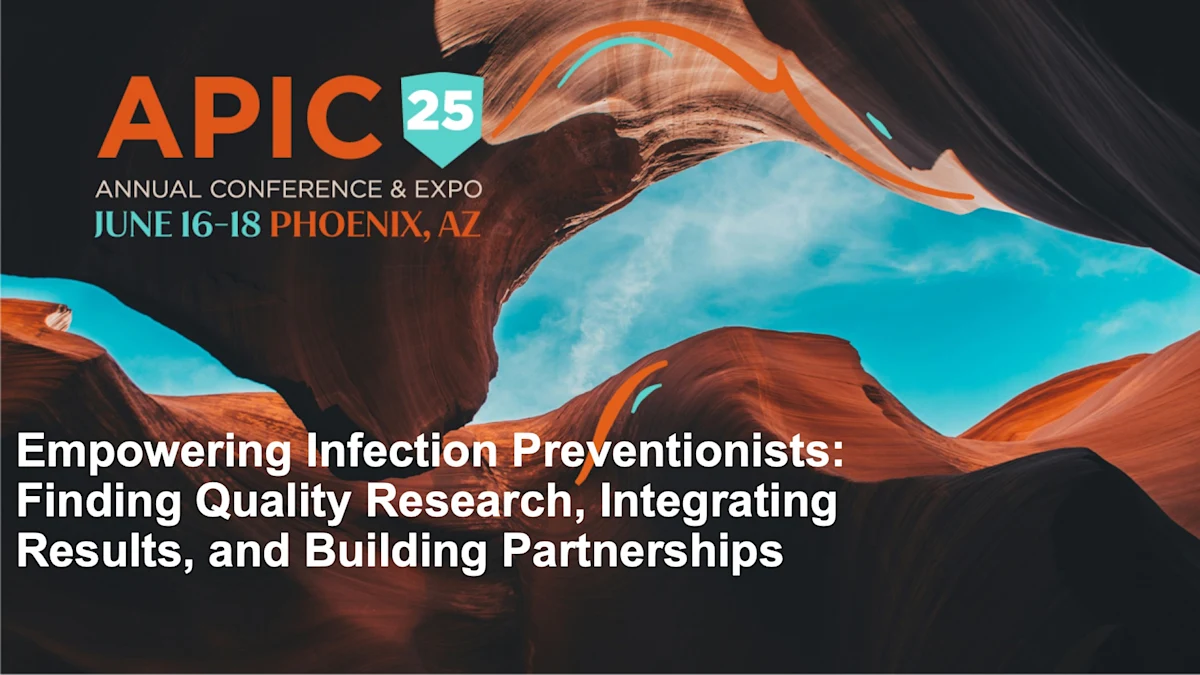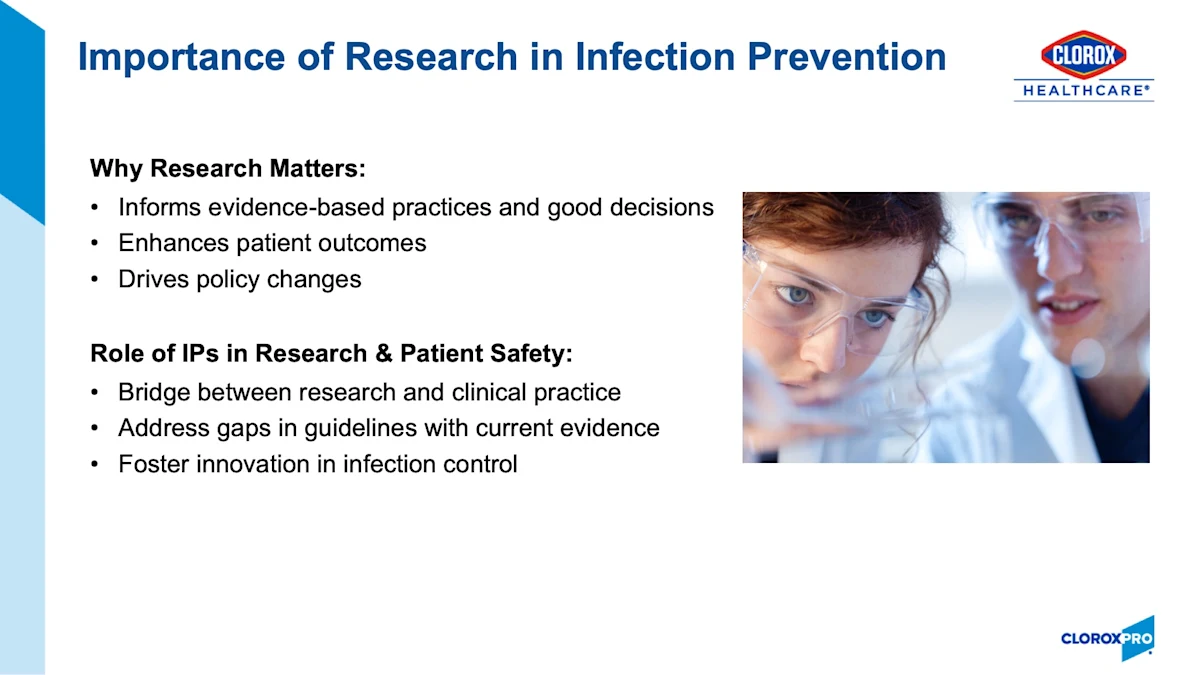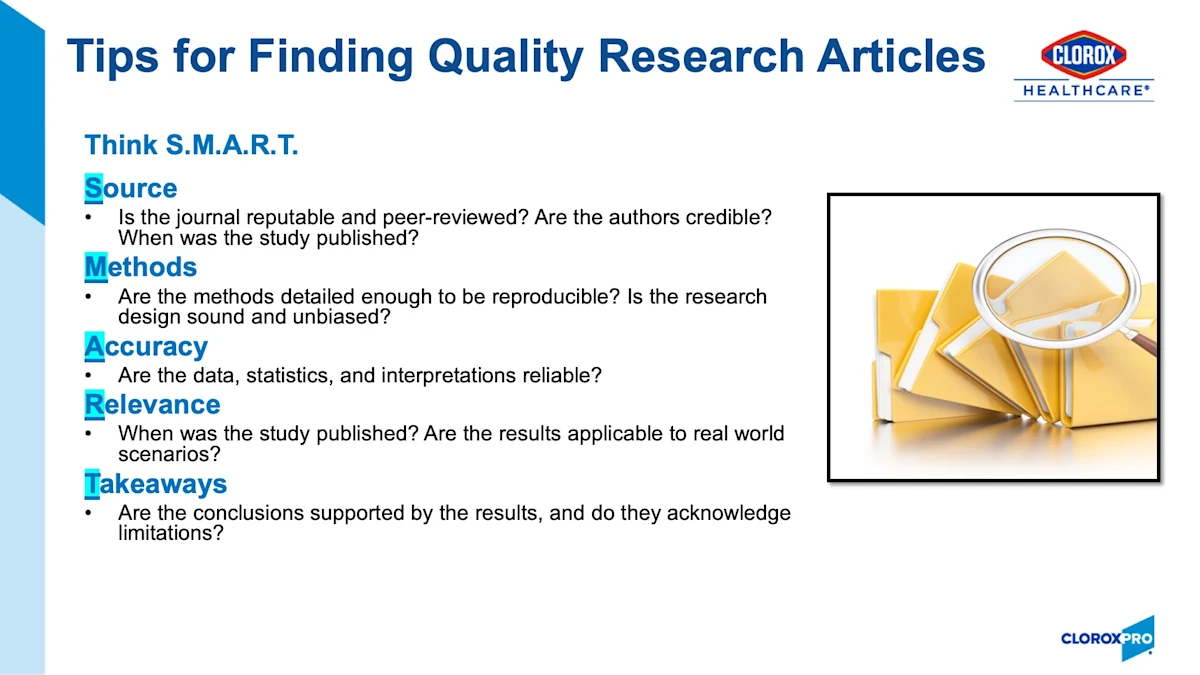APIC 2025 Insights: Research in Infection Prevention Is Not Optional — It's Essential
The topics at this year’s Association for Professionals in Infection Control and Epidemiology (APIC) conference were as hot as the 105° temps in Phoenix! As a trained research scientist, I was thrilled to see a major theme rise to the top: the growing and essential roles of Infection Preventionists (IPs) in research.
Research as a central focus

This year, I had the incredible opportunity to present for the first time at APIC, and it was an experience I will never forget. My session, titled "Empowering Infection Preventionists: Finding Quality Research, Integrating Results, and Building Partnerships," was a collaborative effort with Dr. Rebecca Crapanzano-Sigafoos, APIC’s Executive Director for the Center for Research, Practice, and Innovation.
Our goal was to equip attendees with practical tools and insights to:
- Critically evaluate research literature — to separate strong evidence from weak or biased studies.
- Disseminate research findings effectively — to ensure results are not just read but applied.
- Navigate research partnerships — to strengthen networks that amplify the impact of infection prevention work.
Why IPs and research belong together

One of the most important messages we shared was why research matters. For IPs, research isn’t just an academic exercise, it is the backbone of evidence-based practice. Research informs how we prevent infections, guides hospital policies, and helps close the gap between guidelines and the realities of patient care.
In our presentation, Dr. Crapanzano-Sigafoos discussed the different kinds of research that IPs might encounter or even lead:
- Basic research — advances foundational knowledge.
- Translational research — turns scientific discoveries into practical applications.
- Quality improvement studies — directly improves processes within facilities.
Each plays a vital role in strengthening public health. And for IPs, even if you are not conducting experiments in a lab, you are uniquely positioned to translate findings into safer, more effective care.
Practical takeaways

We also provided practical guidance for finding and using research:
- Stick to peer-reviewed, reputable journals.
- Look for methodological rigor and unbiased design.
- Ask: “Is this relevant to my facility, my patients, and my goals?”
And most importantly: Engage! You do not have to launch a major study to start participating in research. You can critically review new articles, incorporate validated findings into your work, join surveys or focus groups, and/or collaborate with academic and industry partners.
The Power of Partnerships
Strong partnerships can transform research from isolated projects into impactful, collaborative efforts. At Clorox Healthcare, we are proud to work with academic institutions, industry leaders, and frontline experts to help make infection prevention research more accessible, practical and relevant. For example, my colleague, Emily Rosenberg, and I recently co-authored an article in the American Journal of Infection Control (AJIC) clarifying an important misconception: Antimicrobial drug resistance does not automatically mean resistance to disinfectants.¹ To further reinforce Clorox Healthcare’s commitment to producing evidence-based research and knowledge-sharing across the field, we became 2025 Industry Partners in the APIC Research Network (ARN). This partnership enables us to submit collaborative projects to ARN and helps us generate more insights that can advance infection prevention science and equip IPs with the evidence-based tools they need to protect patients and improve outcomes. During our APIC session, Dr. Crapanzano-Sigafoos also spotlighted other collaborative efforts like the APIC MegaSurvey. This large-scale initiative collects critical data from thousands of IPs nationwide. It’s a powerful example of how even small contributions, like completing a survey or sharing real-world insights, can elevate the entire profession and can help move the field forward, together.
The Future of Research
Presenting at #APIC25 was a significant milestone for me, but it also reinforced a bigger message: Research in infection prevention is not optional, it is essential. The profession needs more IPs willing to step into this space, ask hard questions, and push for innovation.
So here’s my challenge to you: Make an active decision today to get involved in research.
- Start by reading one new peer-reviewed article each month
- Say yes to a survey
- Ask your facility how you can help collect or apply data
- Partner with others to launch a project of your own
- Join the APIC Research Network
Together, we can ensure that infection prevention remains grounded in evidence, fueled by curiosity, and ready to meet the challenges ahead.
I am excited about the future landscape of research led by IPs and look forward to seeing this research on display at next year’s APIC conference in Nashville!
Share this article
More from the Clorox Pro Blog
References
- Rosenberg EC, McLean EN. Evaluating the susceptibility of MDROs to disinfection: Why drug resistance does not equate to disinfectant resistance. Am J Infect Control. 2025 Jun;53(6S):S2-S3. doi: 10.1016/j.ajic.2025.05.004. PMID: 40456598
















